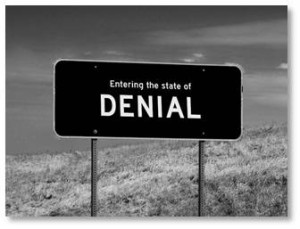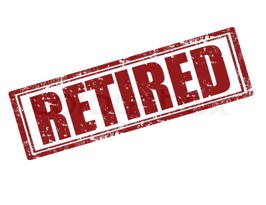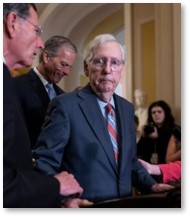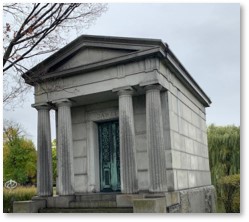What does it take for Democrats to get the picture about the impact of aging past the point of Congressional effectiveness?
The One-Vote Defeat
In the small hours of the morning House Republicans passed a budget bill that will take Medicare away from millions of low-income people. At the very last minute—as if holding the vote at 1:00 a.m. isn’t last-minute enough—the party radicals made more cuts.
The bill passed by one vote. One vote!
The Democrats could have stopped this victory except for a small detail: Rep. Gerry Connolly (D) of Virginia had died. He was the third sitting member of the House Democratic caucus to pass away this year alone. Since March, just two months ago, the Dems have lost Connolly, 75; Rep. Sylvester Turner (D-Texas), 70; and Raul Grijalva (D-Ariz.), 77.
Think about that.
Aging and an Increasing Mortality Rate
And the mortality rate gets worse. All of the last eight deaths of sitting lawmakers in the Congress, including the Senate, have been Democrats. To make it worse, many of the Senators and House Members who died knew about the conditions that killed them when they ran for reelection.
 Their deaths have increased the GOP’s razor-thin margin for error in the House by three votes and thus reduced the Democrats’ chances of imposing some checks on the Trump regime.
Their deaths have increased the GOP’s razor-thin margin for error in the House by three votes and thus reduced the Democrats’ chances of imposing some checks on the Trump regime.
While Mr. Connolly had stepped down from his committee chairmanship and announced he would not run for reelection in the midterms, he hung on to that seat for as long as he could and to the detriment of his party. Maybe he thought he would make it all the way to that election, just like Justice Ruth Bader Ginsburg thought she would survive Trump’s first presidency.
They were both wrong.
Politicians Aging in Place
Editorial boards, columnists and op-ed writers have all addressed the reasons why our elected politicians hang on to their offices well past their ability to function or, in fact, even keep breathing.
This attitude is not restricted to Democrats, of course. We have seen a very old Strom Thurmond carried into the Senate Chamber in a wheelchair and Senator Mitch McConnell freezing in front of the camera on multiple occasions. Senator Chuck Grassley had planned to retire but was persuaded to run to hold on to his seat for Republicans. He’s in his nineties.
Related Post: Our Weekend at Bernie’s Congress
Obvious Reasons for Clinging to Power and Perks
Why do our elected politicians hang on when they are old, sick, and/or demented? Do they really think aging doesn’t affect them?
The acknowledged reasons for their extended tenures include:
 Ego (I’m the only one who can do this job/win this election/fight for right causes)
Ego (I’m the only one who can do this job/win this election/fight for right causes)- Denial (I’m not that old. I’m just fine.)
- Fear of death (If I retire, I’ll die.)
- Identity (Who will I be if I’m not a United States Senator?)
The Hidden Reasons for Hanging On
But I think a few more reasons lurk behind these:
- Clinging to power for the sake of power or because the position makes you feel invincible,
- Craving the perks like drivers and limousines, attending the best parties, meeting important people, and invitations to premium seats at sporting events.
- Passing laws that only apply to other people but never to them,
- Top-notch medical care and other benefits
- Access to insider information for enriching themselves,
- Opportunities for nepotism to employ and/or enrich their family,
- Enjoying the limelight by appearing on TV, having reporters seek their opinions, and being asked to give speeches
Aging and Stepping Back
I understand the temptations and their reasons for giving in to them, but I do not condone it. And that’s not because I’m an ambitious intern with my eyes on a bigger job.
 Let me be frank. I am now the same age as Joe Biden when he was elected President. And I am older than all three of the House members who have died this year. Plus, I am currently the same age as Donald Trump, although he will jump ahead of me next month.
Let me be frank. I am now the same age as Joe Biden when he was elected President. And I am older than all three of the House members who have died this year. Plus, I am currently the same age as Donald Trump, although he will jump ahead of me next month.
Active While Aging
Do I still work at a demanding job? Do I show up for work every day and put myself through the rigors of a 10-hour day—not to mention a 1:00 a.m. vote? I do not. I am retired.
That does not mean I sit in a chair watching TV and eating bon-bons. I have a very active life that includes writing this blog, authoring novels and short stories, and leading tours of Boston both on foot and by bus. During the cruise-ship season, I can work five or six days a week.
But I do not have constituents depending on me to vote for their best interests.
Playing to Your Strengths
I am very aware that my energy levels are not what they used to be, and my body no longer leaps to a challenge. If I need a nap, I go to sleep without embarrassing myself or my party. I know my strengths and play to them while compensating as best I can for my weaknesses.
How to solve this problem? Forget about term limits; I dismissed that idea years ago. And we can’t change human nature.
The Vatican figured out a way to limit the power of old men. Cardinals 80 years older or older cannot vote in the election for a new Pope. Thus the superannuated princes of the Church cannot elect one of their own. While Popes do live well into old age and infirmity, they don’t have a limited term of office. Perhaps they should.
The Legacy of Aging in Place
Experts tell us that politicians, especially presidents, think a lot about their legacy. Clearly, those politicians do not think much about the when, where and how they depart this plane of existence and how that affects their legacy. Justice Ruth Baden Ginsburg used to be my role model. Now I can’t wear her button.
Here’s my message to aging politicians: Nothing will tarnish your legacy like hanging on to your job past the age where you look like the Cryptkeeper. If you shuffle instead of walk, wear makeup suitable for the body in a coffin, have a quavery voice, or resemble Mr. Magoo trying to figure out what’s going on, get out.
If you don’t, history will not be kind to you, or your legacy.


